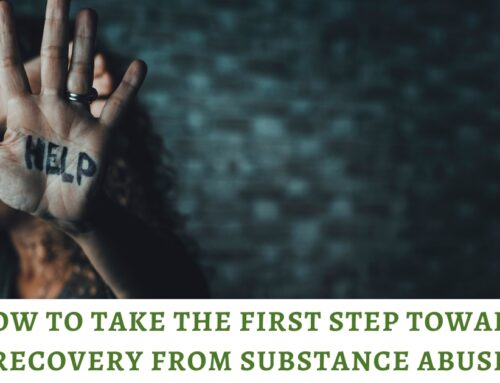Understanding the Cycle of Addiction
At White Oak Counseling and Recovery Center, we strive to provide comprehensive support for individuals battling addiction. Understanding the cycle of addiction is a crucial step toward breaking free and achieving lasting recovery. This blog post delves into the stages of addiction, the psychological and physical effects, and effective counseling approaches for overcoming this challenging condition.
The Cycle of Addiction
Addiction is a complex condition characterized by compulsive substance use despite harmful consequences. The cycle of addiction typically consists of the following stages:
1. Initial Use
The cycle begins with the initial use of a substance. This might occur out of curiosity, peer pressure, or as a means to cope with stress or emotional pain. The substance provides a temporary feeling of euphoria or relief, which can lead to repeated use.
2. Abuse
As use continues, the individual may start to use the substance more frequently and in larger amounts. This stage is marked by abuse, where the substance is used for its pleasurable effects, often neglecting responsibilities and relationships.
3. Tolerance
With continued use, the body builds a tolerance to the substance, requiring higher doses to achieve the same effect. This stage can lead to increased consumption and risk-taking behaviors.
4. Dependence
Dependence occurs when the body and mind adapt to the presence of the substance, leading to withdrawal symptoms when not using it. Physical dependence involves physiological changes, while psychological dependence involves emotional and mental reliance on the substance.
5. Addiction
Addiction is characterized by the inability to control substance use despite negative consequences. It involves compulsive behavior, cravings, and a loss of interest in activities previously enjoyed. At this stage, the substance becomes the primary focus of the individual’s life.
6. Withdrawal
When attempting to stop or reduce substance use, individuals experience withdrawal symptoms, which can be both physical and psychological. These symptoms can be severe and are often a significant barrier to quitting.
The Psychological and Physical Effects of Addiction
Addiction impacts every aspect of a person’s life, including physical health, mental well-being, and relationships. Some common effects include:
Psychological Effects
- Anxiety and Depression: Substance use can exacerbate or trigger mental health issues.
- Mood Swings: Frequent mood changes are common due to the impact of substances on brain chemistry.
- Cognitive Impairment: Addiction can affect memory, decision-making, and overall cognitive function.
Physical Effects
- Health Complications: Chronic substance use can lead to various health issues, such as liver damage, cardiovascular problems, and respiratory issues.
- Tolerance and Dependence: The body becomes reliant on the substance, leading to withdrawal symptoms when not using it.
- Overdose Risk: Increased consumption can raise the risk of overdose, which can be fatal.
Effective Counseling Approaches for Addiction
Breaking the cycle of addiction requires a multifaceted approach that addresses both the psychological and physical aspects of the condition. Here are some effective counseling approaches:
Cognitive Behavioral Therapy (CBT)
CBT helps individuals identify and change negative thought patterns and behaviors related to substance use. It focuses on developing coping strategies and improving self-control.
Motivational Interviewing (MI)
MI is a client-centered approach that helps individuals find the motivation to change their behavior. It involves exploring ambivalence and strengthening the commitment to recovery.
Group Therapy
Group therapy provides a supportive environment where individuals can share experiences and learn from others facing similar challenges. It fosters a sense of community and reduces feelings of isolation.
Medication-Assisted Treatment (MAT)
MAT combines medications with counseling and behavioral therapies to treat substance use disorders. It can help reduce withdrawal symptoms and cravings, making it easier to focus on recovery.
Holistic Therapies
Holistic therapies, such as mindfulness meditation, yoga, and art therapy, can complement traditional counseling approaches. These therapies promote overall well-being and stress reduction.
The Role of Faith and Spirituality
Faith and spirituality can play a significant role in the recovery process. Incorporating spiritual practices, such as prayer, meditation, and scripture reading, can provide comfort and strength. Scriptures like Philippians 4:13 (“I can do all this through him who gives me strength.”) remind us of the power of faith in overcoming addiction.
Building a Support System
A strong support system is crucial for long-term recovery. This includes family, friends, support groups, and professional counselors. Encouraging open communication and providing a stable network of support can significantly enhance the recovery journey.
Conclusion
Understanding the cycle of addiction is essential for breaking free from its grasp. At White Oak Counseling and Recovery Center, we are committed to providing compassionate and effective support for individuals struggling with addiction. By combining evidence-based counseling approaches, holistic therapies, and spiritual guidance, we empower individuals to reclaim their lives and achieve lasting recovery.
If you or a loved one is battling addiction, please reach out to us at White Oak Counseling and Recovery Center. We are here to support you on your journey to healing and recovery.
Contact





